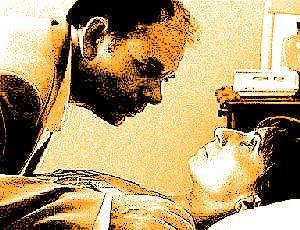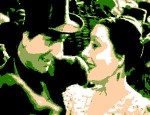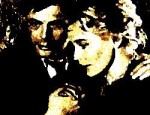Film Review
In common with many of Robert Guédiguian's more recent films,
Mon père est ingénieur
suffers from an excess of artistic self-indulgence and an over
abundance of themes which fail to add up to a coherent whole. The
film is, in true Guédiguian style, beautifully shot in his
native Marseilles and has a beguiling poetic quality which sustains the
spectator's interest and sympathy. However, it fails to have the
impact of his earlier great films, such as
Marius et Jeannette (1997) and
À la place du coeur
(1998), which were far less artistically self-conscious, had much
greater narrative simplicity, and were hence much more effective.
The film has a great deal of charm and poignancy, thanks largely to
some stirring performances from Jean-Pierre Darroussin and Ariane
Ascaride, but suffers from one major flaw. It is hard to
reconcile the realism and sincerity of the film's everyday situations
with the toe-curling, overly sentimentalised sequences recounting the
Nativity. You might argue that the artificiality of these
sequences is justified in that they represent what is in the mind of
the film's traumatised heroine, but even taking that on board they
still appear painfully at odds with the rest of what we
see. Had these scenes been excised or shot in a more
subdued and realist manner, with less of the phoney brotherhood-of-man
sentimentality,
Mon père est
ingénieur could very well have been Guédiguian's
most satisfying film to date.
© James Travers 2008
The above content is owned by frenchfilms.org and must not be copied.
Next Robert Guédiguian film:
Le Promeneur du champ de Mars (2005)
Film Synopsis
After suffering a traumatic experience, Natacha is left in a partially
comatose state, unable to communicate with anyone, not even her
father. Only a few days ago, she was full of life, an active
paediatrician in a poor district of Marseilles and a militant Communist
fighting against racial intolerance and the deportation of
immigrants. Hearing of her condition, her former boyfriend,
Jérémie, takes time out from his important government job to be with
her. He recalls their happy times together and hopes desperately
that one day she will return to him, in body and in mind...
© James Travers
The above content is owned by frenchfilms.org and must not be copied.


